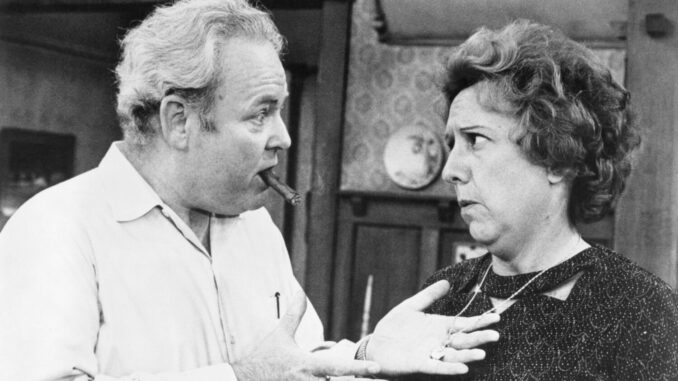
A Character Who Still Sparks Debate
Archie Bunker from All in the Family remains one of television’s most iconic—and divisive—characters. Decades after the show aired, people still argue about whether Archie was simply a reflection of his time or a symbol of racism in American culture.
So why is Archie Bunker considered racist? Let’s break it down.
Understanding Archie Bunker’s Controversial Legacy
Archie Bunker Was Designed as a Flawed Character
Archie wasn’t created to be a hero—he was deliberately written as a working-class man with outdated beliefs. The writers intended viewers to laugh at his ignorance, not embrace it.
But even when satire is the goal, the lines can blur.
His Views Reflected Real Prejudices in American Society
Archie frequently expressed biases about race, ethnicity, gender, and sexuality. These opinions were common among certain groups in the 1970s, which is exactly why the show placed them under a comedic spotlight.
The Main Reasons Archie Bunker Is Considered Racist
He Used Racial Stereotypes in Casual Conversation
Archie often relied on stereotypes when talking about Black people, Hispanic people, Jewish people, and other groups.
Even though the jokes were written to expose prejudice, the language itself still carried weight.
He Believed in Racial Hierarchies

Archie frequently suggested that certain races were “better” or “worse” than others. His comments aligned with discriminatory thinking that had persisted for generations.
He Resisted Social Progress
Whether it was civil rights, women’s rights, or cultural change, Archie pushed back on anything he saw as a challenge to the world he knew.
This resistance alone didn’t make him racist, but it reinforced the idea that equality was something to fight against—according to him.
But Was Archie Bunker MEANT to Be Racist?
Satire Explained
All in the Family was a satire. Archie wasn’t meant to be a role model.
He was designed to showcase the flaws in racist thinking, not encourage them.
The Show Exposed Racism by Making Viewers Laugh at It
Norman Lear, the show’s creator, used Archie to hold up a mirror to society.
The goal? Make viewers uncomfortable enough to recognize how ridiculous prejudice could be.
Archie Often Learned Lessons—Slowly
Even if he didn’t change dramatically, Archie occasionally realized he was wrong. These moments softened the character and reminded audiences that people can learn… even stubborn ones.
Why Modern Audiences See Him Differently
Today’s Standards Are Different
What was considered edgy but acceptable in the 1970s may feel offensive today.
Modern viewers aren’t always familiar with the satirical framework the show used.
Some Viewers Still Misunderstood the Satire
A portion of the audience actually agreed with Archie instead of laughing at him.
This confusion remains one of the show’s most controversial legacies.
His Dialogue Wouldn’t Pass Today’s TV Guidelines
Network standards have changed dramatically. Many of Archie’s most famous lines would never air in modern sitcoms.
Cultural Impact of Archie Bunker’s Racism
He Started National Conversations
Love him or hate him, Archie forced the public to talk openly about racism, bias, and generational differences.
He Became a Symbol of the “Old Guard”
Archie represented a fading worldview—one many people were ready to move beyond.
The Character Influenced Future TV Shows
Without Archie Bunker, there may be no Tony Soprano, Al Bundy, or Michael Scott—characters who are flawed but fascinating.
Was Archie a Bad Person or a Product of His Time?
The Nuanced Answer
Archie was both.
He behaved poorly at times, but he also reflected genuine struggles of Americans who felt left behind by rapid social change.
Why Complexity Matters
Complex characters make for unforgettable television. Archie’s contradictions—loving yet prejudiced, funny yet offensive—made him real.
Final Thoughts: Why Archie Still Matters
Archie Bunker is considered racist because he expressed harmful beliefs.
But his role wasn’t to promote racism—it was to expose how deep those prejudices ran in American culture.
His character opened doors for candid conversations about intolerance, change, and the messy process of progress.
Conclusion
Archie Bunker’s character is labeled racist because he openly voiced prejudiced views, resisted social change, and represented outdated thinking. Yet his purpose was rooted in satire—challenging viewers to examine racism through humor, discomfort, and reflection.
Even today, Archie remains a symbol of how entertainment can highlight society’s flaws while pushing audiences to think more critically.
